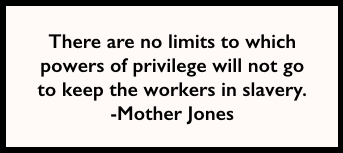 ———-
———-
Hellraisers Journal – Thursday September 2, 1909
Strikebreakers Return to New York City from McKees Rocks with Tales of Abuse
From The New York Times of August 28, 1909:
RETURN FROM McKEES ROCKS.
—–
Strikebreakers Who Enlisted Here
Come Back with Tales of Abuse.
—–
—–
Five white-faced, sunken-cheeked men got off a train at Jersey City yesterday and disperse, wearily and in silence, to their east side tenement homes.
They were James Gottfried, Alexander Friedman, Joseph Diamond, James Graden, and Joseph Bredes. They had been taken to Schoenville, near Pittsburg, with more than a hundred other machinists from this city two weeks ago to break the Pressed Steel Car Company’s strike [at McKees Rocks]. They had been hired for the job through the activity of Leo Bergoff’s “Service Bureau” ” of this city.
According to the story told by the five men yesterday, they spelled out an advertisement for “machinists” in the “help wanted” columns of a Manhattan newspaper about two weeks ago. All five had recently come to this country and wanted work. They went over to the basement at 205 West Thirty-third Street, as the advertisement directed. They were met there by Bergoff, “Sam” Cohen, and their lieutenants. Cohen told them that he wanted ” 1,000 railroad car truck builders,” and that he was willing to pay $3 a day. He said the “job” was in Pittsburg, and that it was a “good one.” To impress the men with its excellence he had them sign their names to a piece of paper, on which there was some writing which they could not see, because, the men said yesterday, his hand was in the way.
The men agreed to go, and on July 16 they were taken to Jersey City by Cohen and put on a train. Getting off at Pittsburg, they were herded on a big transport and taken up the river to the Pressed Steel Car Company’s works. Here they were set to work immediately without being given even a chance to rest after their journey. For the next nine days and nights the five men worked, ate and slept in big, barn-like structures inside the stockade with 2,000 machinists and other laborers who, they say, were kept at work inside the stockade against their will.
